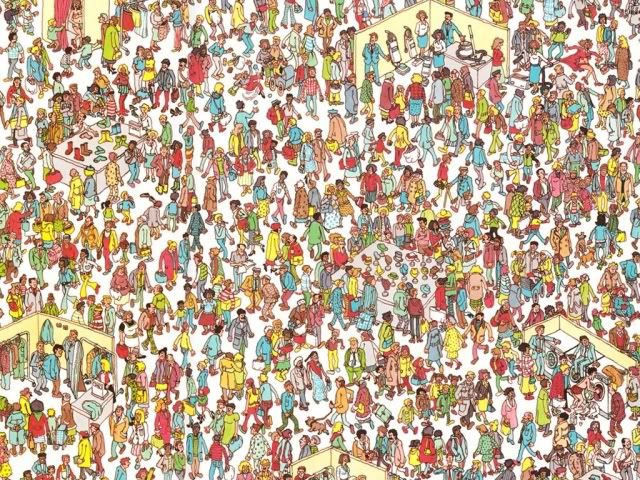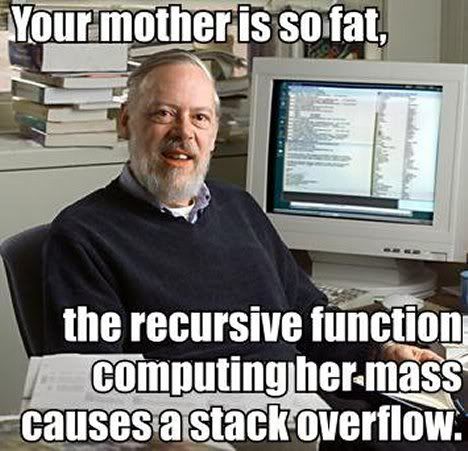My whole point is that if one doesn't adopt the "Christianity came first" perspective, and looks at Islam objectively, within the framework of Islam Allah = God = Yahweh. Christians disagree because of the Trinity. Islam doesn't say it's a different God, it says that God has no progeny.
Again, you're talking about labels rather than characteristics. Yes, all three religions claim to worship the "God of Abraham." But no devout Muslim believes that Christians and Jews today are actually worshiping Him. Ditto for the other two faiths; Christianity sees Jews and Muslims as apostate, and Judaism sees Christians and Muslims as apostate. Thus, the three faiths do not see their own deities as identical. It is believed in Islam, for instance, that the Yahweh worshiped by Jews today (and in the fourth century, for that matter) is NOT the true God, but a false god, and that the Trinity worshiped by Christians is NOT the true God, but a false one. Therefore, while the labels may be interchangeable, the specific conceptions of deity are not.
I'm not saying the religions and all their fine details are the same. I'm saying that the groundwork, traced back to Abraham and earlier prophets before Jesus, is common.
Sure, there are commonalities, but there are also vast differences. All three religions claim to have definitive divine revelation from God Himself, yet these three revelations conflict. Was the blessing of the Abrahamic covenant extended to Abraham, Isaac, and Jacob, or to Abraham, Ishmael, and Esau? Did Abraham attempt to sacrifice his first or second son on Mt. Moriah? More importantly, are only Jews going to Heaven? Or only Christians? Or only Muslims? The point is, all three "revelations" are mutually exclusive in certain respects (as least insofar as the communities of faith interpret them), so if your claim is correct then why did one deity reveal Himself in three such contradictory and mutually exclusive accounts?
Akwat - you interpret Islam's stance of Judaism and Christianity being corrupted as Islam saying they believe in a different God. That is incorrect. The Quran doesn't say that and your argument is invalid. Your quote does not say it's a different God anywhere. Islam says that the scriptures of The Old/New Testaments were partially corrupted by man. That is why The Quran is written as the actual word of God.
Technically, Islam does not believe that it believes in a different God, it believes that Jews and Christians believe in a different God. Which is functionally the same thing. That's why Jews and Christians who do not convert to Islam will suffer forever in Al-Hutamah and Laza. Surah 98:4-7: "And the people of the Scripture (Jews and Christians) differed not until after there came to them clear evidence. (i.e. Prophet Muhammad) (Peace be upon him) and whatever was revealed to him). And they were commanded not, but that they should worship Allâh, and worship none but Him Alone (abstaining from ascribing partners to Him), and perform Prayers and give Charity: and that is the right religion. Verily, those who disbelieve (in the religion of Islâm, the Qur'ân and Prophet Muhammad (pbuh)) from among the people of the Scripture (Jews and Christians) and pagans will abide in the Fire of Hell. They are the worst of creatures. Verily, those who believe [in the Oneness of Allâh, and in His Messenger Muhammad (pbuh)) including all obligations ordered by Islâm] and do righteous good deeds, they are the best of creatures.
I'm repeating myself because you are repeatedly ignoring the very fact that The Quran states repeatedly that Allah is the God of Abraham. You've ignored this because it contradicts your viewpoint.
I haven't ignored it, I've addressed it directly. Labels do not equal characteristics. My dad's name is George, and I assume from your screenname that yours is, too. That doesn't mean that the two of you are the same person.
You've also ignored the fact that The Bible condemns nonbelievers to hell as well.
Quite to the contrary, I said in post #155: "Islam consigns Christians and Jews to hell, while Christianity does the same for Jews and Muslims." Why would I ignore this, as it proves my point rather nicely? The personal Eschatologies (i.e., doctrines of the afterlife) of all three religions consign the adherents to the other two faiths to hell, and that constitutes incontrovertible evidence that--as far as these faiths themselves are concerned--the other two are not worshiping the same God. If they really believed that, then all three religions would regard the adherents of the other two faiths as Heaven-bound. They don't.
I don't know which one is correct (if any), but your perspective in this argument depends on which faith you have. Christians will say the Muslim God is different. Muslims will say it's the same God (but He didn't have a son). I'm not sure what Jews will say...
This is rather uninformed, if you don't mind my saying. Again, devout Muslims do NOT believe that Jews and Christians worship Allah. Nor do Jews believe that Christians and Muslims are worshiping Yahweh. Nor do Christians believe that Jews and Muslims are worshiping the Trinity. Thus, the deities of Judaism, Christianity, and Islam, are different.
One need not adhere to any of these faiths in order to recognize and appreciate their respective complexities and the vast differences between them.
You guys are saying what Islam says can't be resolved with Christianity because Christianity came first (ROTJ vs hack sequel).You guys are saying what Islam says can't be resolved with Christianity because Christianity came first (ROTJ vs hack sequel).
No, I'm not. I have nowhere presented an argument based on chronological priority. My argument is that Islam's teachings can't be resolved with Christianity's or Judaism's because they are objectively irreconcilable. By the same token, the teachings of Judaism and Christianity cannot be resolved with those of Islam. The door goes both ways, but whichever vector of approach you choose, the point remains the same: The Allah worshiped by Islam is not the same deity as the Yahweh worshiped by Jews or the Trinity worshiped by Christians. And vice-versa.
I'm trying to convey that, without ruling out Islam because it came after Christianity, the common denominator is the same God.
Again, similarity does not constitute identity, and just because two things bear the same label does not make them identical. Ontologically, the characteristics ascribed to their respective deities by these three faiths are markedly different to the point of mutual exclusivity.
Thus, you're concluding that Islam is a false religion and it can't be resolved with The Bible.
Can't be resolved with the Bible? True. Islam a false religion? For my part, I have made such a claim nowhere in this thread. Please stop putting words into my mouth. Pointing out the differences between these religions' conceptions of God is not the same thing as ruling one or more of them true of false.
Islam does say that the word of God was corrupt in previous faiths.
Right. And that therefore, those revelations in their corrupted forms point to false gods rather than Allah.
That's simply not true because as I've stated over and over, The Quran draws on the stories/teachings of the many prophets in The Old/New Testaments.
It does indeed "draw" on them, but in so doing it alters and contradicts them. Have you ever done a comparative reading of the Qu'ran and the Bible? I recommend it. Specifically, compare Gen. 1:1-2:2 with Surah 41:9-12; 1 Sam. 9-10 with Surah 2:246-252, 5:20; Esther 3:1 with Surah 28:35-42, 40:36-37; Ex. 2:5-6 with Surah 28:4-10; Ex. 2:15-22 with Surah 28:23-28; Gen. 17:1-5 with Surah 21:60; Gen. 9:28-29 with Surah 29:14; Ex. 24:3-8 with Surah 2:92-93; and John 8:57 with Surah 5:110. And that's just the beginning; further contradictions could be produced ad infinitum. So, given the massive differences between the various faiths' relevations, we are left with basically only two options.
1.) The three versions of God are in fact the same, but for some reason the three accounts of Himself that He revealed are completely different and oftentimes contradictory. If this is the case, then none of these three religions may be taken seriously, since all conceive of God as unable to err, which obviously wouldn't be true given this scenario.
2.) At least one and possibly two of the three revelations of God are corrupted so severely that barely any semblance remains to what they originally said. If this is the case, then those relevations that have been corrupted now point inexorably to different (false!) versions of God. Hence, the three deities are not one and the same.
To support your argument that the Gods cannot be the same, you're using a belief system truncated after Christianity. Thus, you're concluding that Islam is a false religion and it can't be resolved with The Bible.
Again, if you'd read what we're actually saying rather than putting words into our mouths, you'd see that no one is making any value judgment as to which religions are "true" or "false." I am merely contending that the theological differences between the three religious systems are irreconcilable. You're the one who keeps trying to find some sort of religiously binding statement in what is essentially an objective discussion of comparitive religions, not an evangelistically-motivated polemic.
When you start talking about all the ways that Christianity debunks Islam, you have to equally look at all the ways Islam debunks (or attempts to resolve) Christianity.
Again with the polemic-talk. I'm not trying to "debunk" any religion; it is my aim in this thread simply to point out the complexity and variations between the three faiths. As I have argued, if you allow all three faiths to define their own terms, then you will inexorably arrive at the conclusion that they worship different (although similarly labeled) deities.
No, seriously, the Koran (dude, I totally spelled it wrong in the above quote) claims that the two religions that came before it are corrupt as hell, while pointing out that it itself is corruption proof.
Correct. The incipient form of this teaching is found in Surah 5:48 and 15:9. Later, it was expanded upon by Ibn Hazm, whose impact can still be seen on Islamic doctrine today. This concept (that the earlier revelations were terribly corrupted) is known as the Islamic doctrine of Tahrif, and I think it impacts this discussion directly. If the earlier revelations in their present form are corrupted to the extent that the deities to which they bear witness are false, then Islam itself essentially claims that the Gods of Judaism, Christianity, and Islam, are different Gods.


